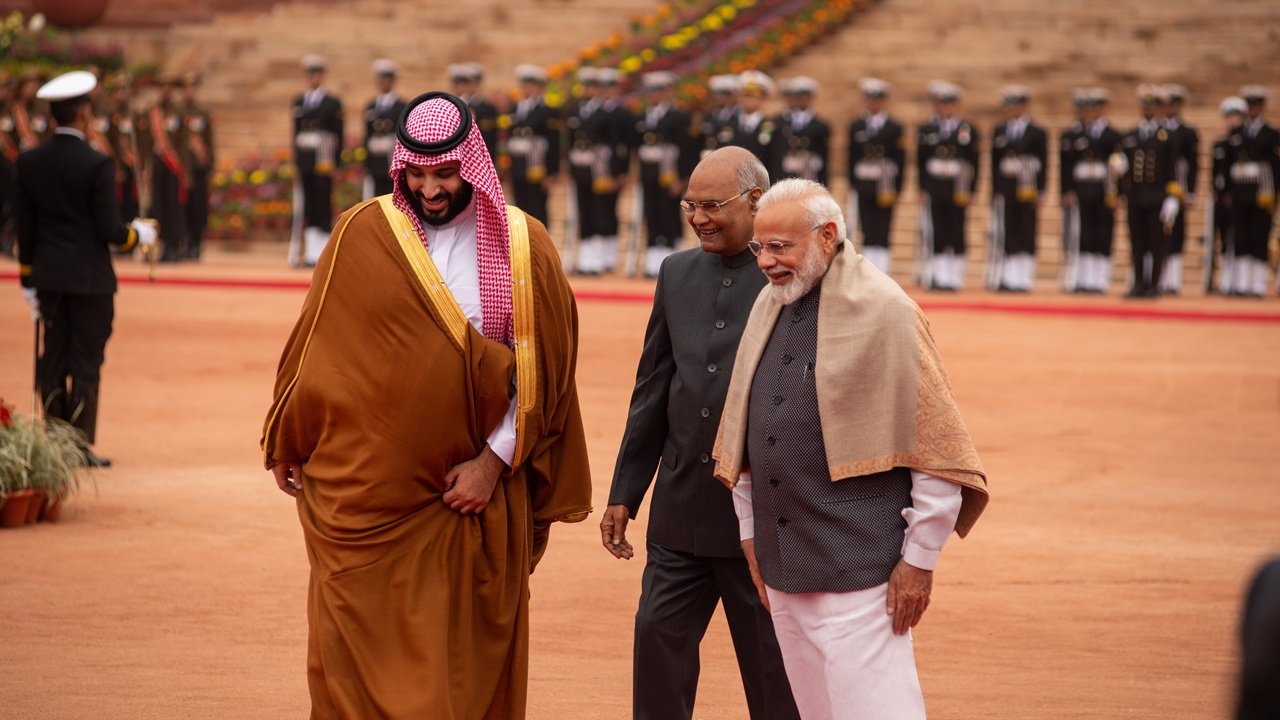Regional powers—notably Saudi Arabia and Iran—are increasingly choosing a side in the ongoing fracas between New Delhi and Islamabad.
As the India-Pakistan crisis continues to escalate, a curious diplomatic element has gone largely unreported in the Western press. Representatives from the governments of both the Islamic Republic of Iran and the Kingdom of Saudi Arabia have both been spotted on the Indian subcontinent, meeting with their counterparts in the Indian and Pakistani governments—all as the region inches toward a brutal and unpredictable war.
Saudi State Foreign Minister Adel al-Jubeir met with India’s Foreign Minister S. Jaishankar. Meanwhile, Iranian Foreign Minister Seyed Abbas Araghchi met with Pakistani leaders, shortly before Araghchi met with India’s representatives in New Delhi.
Why Is Saudi Arabia Involved in the War?
First, the Saudi role in this affair. Saudi Arabia has a longtime religious and even strategic relationship with Pakistan. It has long been assumed that if Riyadh wanted to acquire nuclear weapons quickly, it could purchase them from Pakistan.
Yet, curiously, the Saudis went to New Delhi before Islamabad. That’s because Saudi Arabia is India’s fifth-largest trade partner and India is Saudi Arabia’s second-largest. Their trade partnership is robust; Saudi exports to India are primarily crude oil and petrochemicals, while India’s exports are predominantly engineering goods, textiles, and food products. Saudi Arabia’s Public Investment Fund (PIF) has invested significantly into India as well. Saudi Arabia’s “Vision 2030,” the country’s great quest to diversify Saudi Arabia’s economy away from that of oil to high-technology and renewable energy sources, aligns with India’s development goals like the Skill India and Digital India plans.
Meanwhile, some defense cooperation has also taken place between the two countries, with joint naval exercises like Al Mohed Al Hindi ongoing since 2021. Indian defense firms participate in Saudi Arabia’s World Defense Show—eventuating in Munitions India Limited winning a prominent contract to supply the Saudi military with artillery ammunition.
Lastly, there is an unspoken concern on the part of Saudi leaders over the prospects that the Pakistani government is to some extent a state sponsor of Islamist terror. Although this is ironically Saudi Arabia’s fault—its support for political Islam under President Zia-ul-Haq from 1979 onward, its sponsorship of extremist religious schools in Pakistan during the 1980s, and its funnelling of jihadist militants to Pakistan to fight against the Soviet Union in Afghanistan each helped to create the present situation—the current Saudi administration is extremely anti-Islamist in nature, due to the fact that Islamist groups seek to overthrow the Saudi government.
So, Saudi Arabia and India have much in common. The arrival of Saudi representatives in New Delhi is a significant moment in the ongoing war on the subcontinent.
What Does Iran Want from Pakistan?
Pakistan’s relationship with Iran is substantially more complicated than its relationship with Saudi Arabia. While both nations are Islamist powers with a history of supporting various terror networks to further their grand strategic aims, the two have clashed in the recent past. Notably, Pakistan is a Sunni country, while Iranians are Shiites—occasionally putting them on opposite sides of sectarian clashes in the Greater Middle East. This is to say nothing of their own disputes; in 2024, for example, Iran launched airstrikes against Pakistan, targeting what Tehran believed were Islamabad-backed anti-Iran militants belonging to the Baloch separatist movement.
Since 2024, however, China—a key ally of both states—has mediated tensions and fostered trilateral cooperation, particularly through its Belt and Road Initiative (BRI) development project and Shanghai Cooperation Organisation (SCO) international forum. And Iran and Pakistan also collaborate on the issue of securing their respective borders with Taliban-controlled Afghanistan (with whom both nations’ relations are equally byzantine).
The key aspect here to understand in Iran’s recent diplomatic blitz with Pakistan is both countries’ connection with China. Beijing clearly favors Pakistan in its war against India—not because China is ideologically aligned with Pakistan, but because Beijing correctly views Pakistan as a cudgel to use against its Indian rivals. Iran, as a member of China’s budding Eurasian alliance, is likely attempting to march to China’s tune by supporting Pakistan.
What About India-Iran Relations?
As for the Indo-Iranian relationship, these two have maintained relatively strong diplomatic ties, with high-level visits reinforcing cooperation. In the face of growing pressure from U.S. economic sanctions directed against Iran, India has weakened its trade relationship with Tehran—but continues to do business with it, even amid the sanctions and New Delhi’s growing ties with Israel. India routinely engages with Iran in bilateral talks and multilateral forums, such as the Shanghai Cooperation Organisation (SCO).
Iran is a key investor in India’s Chabahar Port development deal, which aims to provide a strategic trade route to Afghanistan and Central Asia, bypassing Pakistan entirely. Despite American sanctions, a ten-year agreement was signed between the two countries in 2024.
India clearly has an expansive diplomatic portfolio compared to Pakistan. But the Pakistanis should not be underestimated. The growing war of 2025 risks becoming a proxy war, notably between Beijing and Washington—and with various other proxies, such as Saudi Arabia and Iran, playing the role of the middleman.
About the Author: Brandon J. Weichert
Brandon J. Weichert, a Senior National Security Editor at The National Interest as well as a contributor at Popular Mechanics, who consults regularly with various government institutions and private organizations on geopolitical issues. Weichert’s writings have appeared in multiple publications, including the Washington Times, National Review, The American Spectator, MSN, the Asia Times, and countless others. His books include Winning Space: How America Remains a Superpower, Biohacked: China’s Race to Control Life, and The Shadow War: Iran’s Quest for Supremacy. His newest book, A Disaster of Our Own Making: How the West Lost Ukraine is available for purchase wherever books are sold. He can be followed via Twitter @WeTheBrandon.
Image: Shutterstock / PradeepGaurs.
